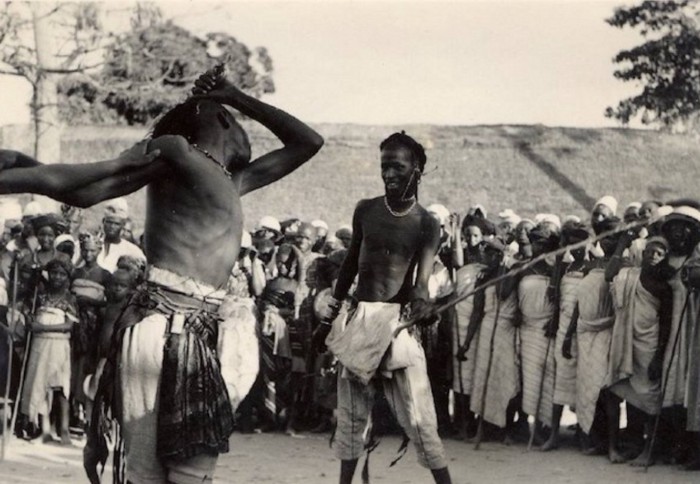People make culture and this culture varies from one tribe to another. In history, people have been made to believe in these practices to guide their conduct and behavior. The promotion of culture is in different sectors- work, family, business, marriage, transition, lifestyle, language, dressing, and even dance, which are passed from generation to generation.
In this piece, Naijabiography explores the culture of the Fulani- a minority group from the Northern part of Nigeria, and the transition of their adolescent boys to grown men.

Male adolescent rites of passage are common in many African traditional societies. Sacrifice, hunting, bravery, strength, and fortification are some of the traditions that may differ from culture to culture. The Fulani of West Africa is one such indigenous people.
The Fulani people’s Sharo celebration, also known as the Shadi festival, serves as a gateway for Fulani boys to reach manhood and marry up to four wives. The Sharo festival is held twice a year among Fulani communities, once during the dry season when guinea corn is ready to harvest and once during the Muslim Eid-el-Kabir feast. The flogging festival is mainly held in open areas such as markets, fields, and village squares and lasts for a week. Dignitaries from both within and beyond the Fulani country, as well as Nigeria, are in attendance.
The festival begins with a gallant show of acrobatics, magic, dances, and songs performed by lovely maidens with sweet vocals. The flogging session, where young yet powerful guys demonstrate bravery by refusing to be whipped, is the most anticipated part of the Sharo festival. Beautiful girls lead a bunch of bare-chested unmarried boys to the center of the arena at the start of the flogging session. Each contender’s family prays and recites mantras during the flogging so that their representative will not be shamed.
Though the severe whipping often leaves marks on the contenders, it is part of their cultural heritage that such a practice is a sign and display of courage. The crowd’s loud cheers and beautiful drumbeats increase hopes as contestants assess their opponents. The families of the contenders watch and pray that their sons will not be disgraced, for a son who cannot withstand the flogging brings shame to the family.
If a contestant surrenders, he will be perceived as not being manly enough. However, if he survives the flogging, he will be welcomed and celebrated by his family and supporters. During the festival, to prevent major damage such as blindness, there is always a provision for a referee to oversee the floggings. The challenger raises the cane in the referee’s direction and’ lands it on the back of the contender, who is intended to be dancing, singing, laughing, and yelling for more in a parody of his opponent.
History has it that once the contenders survive the flogging, they are seen as men and are eyed by beautiful ladies. They would also be able to marry up to four wives, as stipulated in the Islamic religion, if they have the capability of managing them.
However, since most modern Fulanis view it as hazardous and non-Islamic, there has been a drop in practice. Even to this day, certain Fulani communities are adamant about maintaining the ritual.






Comments
Victoria
3 years agoThis tradition is amazing